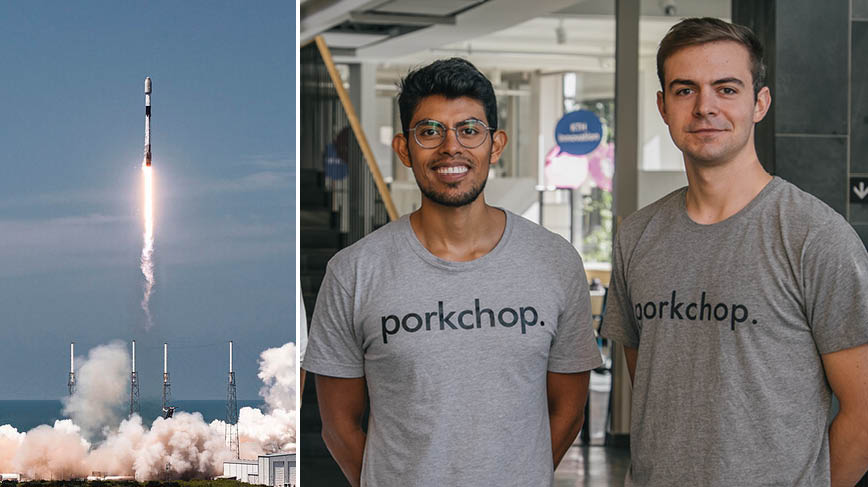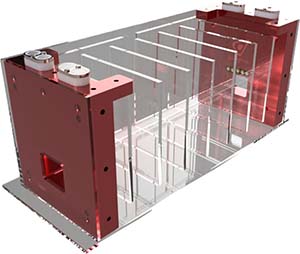Space launch for KTH startup porkchop

Matija Milenovic and Victor Gonzales started the spacetech company porkchop as KTH students. Now, their nanosatellite propulsion system is in orbit after a ride into space on SpaceX Falcon 9.
- Our aim is to test the technology, says founder and KTH alumnus Matija Milenovic.
Nanosatellites are no larger than a shoebox and weigh only a few kilograms. They have plenty of applications, and can for example be used to provide internet access in remote areas, track natural disasters in real time, or improve crop usage.
- When you start making satellites smaller they become cheaper, but you often lose functionality, says Matija. Propulsion systems take up a lot of space, so many nanosatellites completely lack the ability to navigate. This means that they cannot avoid collisions and it shortens their life span. That is the problem we want to solve.

Porkchop is developing a solution where fuel, engine, control system and all electronics that handle the propulsion of the satellite are integrated. They compare it to building a car's engine into the chassis instead of it needing its own engine compartment. This is crucial to keeping weight and volume down.
Victor and Matija came up with their idea when they were nearing the end of their first year as master's students in Aerospace Engineering at KTH.
- The problem we have always been trying to solve is how we make it easier to use space. There are so many benefits, but today both technical and economial factors slow us down. If we can help remove some of the obstacles, we could open up space for new technology. Then others can create critical services, like monitoring climate change in real time.
In the Student Workshop at KTH, they got access to tools, materials and a place where they could build and test their solution. At the same time, they received support from KTH Innovation to develop porkchop towards the market.
In October 2019, porkchop joined the KTH Innovation pre-incubator program , a 12-month program for promising startup projects from KTH. The teams in the program get office space at KTH Innovation’s premises at Teknikringen 1, access to makerspace and production studio, weekly workshops to develop their ideas, and perhaps most importantly, become part of a creative and supportive community.
- If we hadn’t joined the program, porkchop probably wouldn’t exist today. It was immensely helpful. Even if you do come to the conclusion that it is not for you, you will still have learned a lot from trying to start a business. You have nothing to lose. In our experience, the program and coaching are truly world class.
Porkchop's propulsion system has been integrated into a Laika satellite. On January 13, 2022 at 16.30 Swedish time, it will be launched from Cape Canaveral with the SpaceX Falcon 9 rocket.
- We will try to fire the propulsion system on one side to rotate the satellite. If we succeed with that, we will be really happy. In the future, we’re aiming to build on this technology to become an in-space logistics company for the satellites of tomorrow.
By: Lisa Bäckman